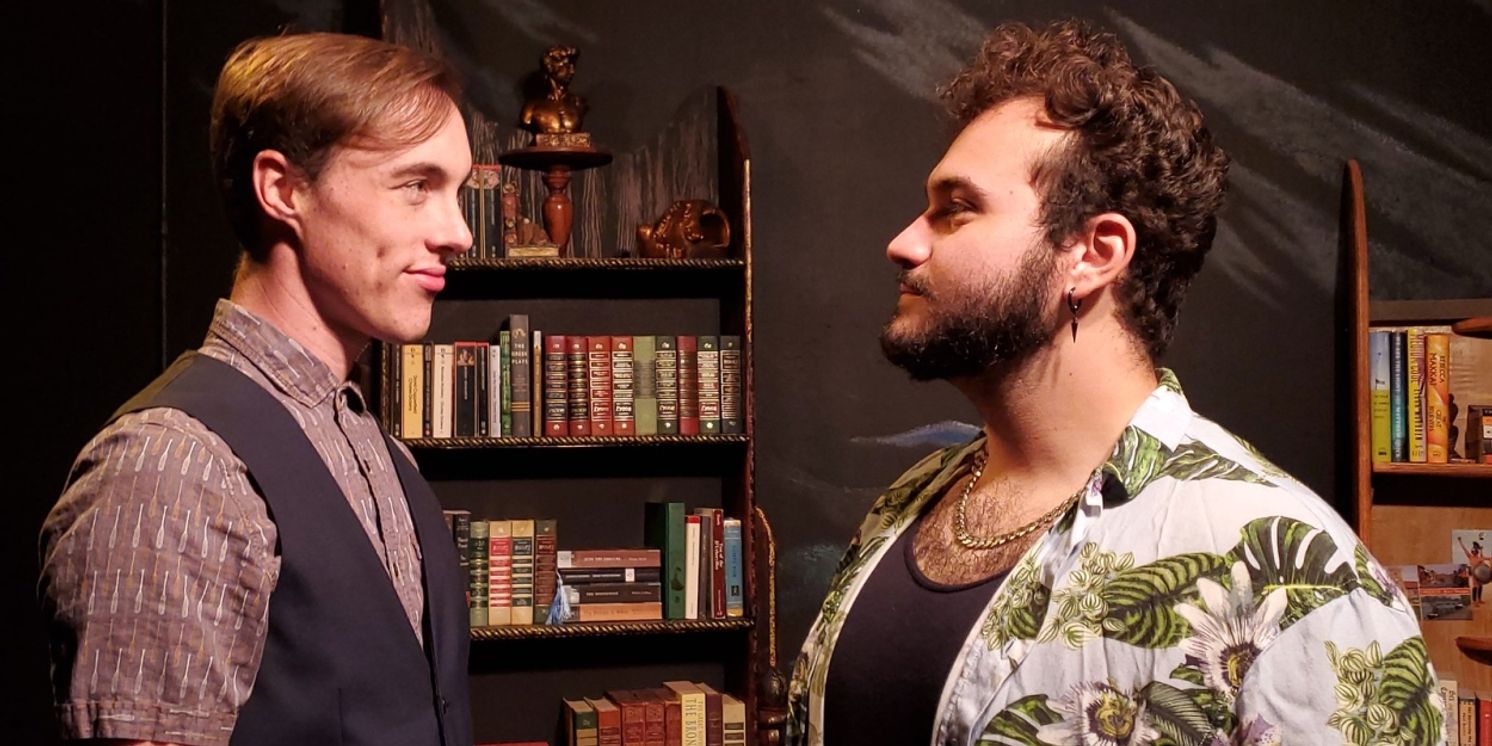Review: LIGHT SWITCH at Open Space Arts
The production has already been extended through October 13.

In a weekend full of fall theatrical openings, it’s always a joy to find a particularly illuminating gem among a wealth of treasures. One of the most moving leading performances of the month can be found in an Uptown Chicago apartment building basement that seats no more than twenty-five patrons and currently serves as the home base for Open Space Arts. The company’s mission has always been to combat prejudice through the transformative power of the arts, and their latest production of LIGHT SWITCH shines a much-needed spotlight (no pun intended) on the struggles of neurodiverse members of queer communities. The production has already been extended through October 13, but—if popular demand is any indication—these added performances will soon sell out as well.
Written by Dave Osmundsen, LIGHT SWITCH follows a few weeks in the life of Henry (Phillip Andrew Monnett), a young autistic gay man writing his dissertation on Victorian British literature. But while he loves reading about marriage plots in the novels of Jane Austen, the Brontë sisters, and George Eliot, Henry would much rather experience a passionate romance on his own terms. With the help of his supportive longtime roommate Rogie (Henry DelBello), Henry works on building a relationship with the seemingly sweet party boy Joseph (Peter Manuel Young).
But the love story that follows is rarely predictable and frequently illuminating. Osmundsen’s script expertly illustrates how difficult it is for neurodiverse individuals to navigate systems of queer communication. Forced into secrecy for so long, gay men frequently rely on subtext, innuendo, and pregnant pauses to convey meaning to one another in spaces that might be unfriendly. But people with autism struggle with the figurative and the unstated, leading them to miss important social cues and frustrate friends and family alike. Flashbacks within the play (punctuated by “Masterpiece Theatre”-worthy music by Alex Kingsley) show how Henry has been haunted by such conflicts throughout his life, though other characters’ motivations occasionally seem to contradict themselves.
Such a role could easily come across as cloyingly quirky or—worse yet—hopelessly tragic, but Monnett exudes a natural calm and sensitivity that endears audiences to Henry even as others in his life threaten to abandon him. His head turned by Victorian manners of speaking, Henry’s dialogue is written as though he has just ridden a carriage straight from Pemberley. But Monnett delivers his lines without pretense or irony, treating Henry’s mental and emotional life with the heartwarming--sometimes heartbreaking--sincerity they deserve.
Despite its subject matter, LIGHT SWITCH is quite funny, partly due to Henry’s idiosyncrasies. But also because director Michael D. Graham has assembled a cast that knows how to develop a natural sense of humor. DelBello particularly shines in this regard, his winning smile and ironic joking endearing him to audiences while also making a compelling case for why Henry has remained roommates with Rogie for most of their young adulthood. Some of Rogie’s more dramatic moments later in the play feel less natural, but this may be because the script forces an unexpected shift in characterization on him in the play’s second act that feels too sudden to be fully believed. Dylan McCumber also earns laughs as a series of “other guys,” the men who come along and interrupt romances already in progress. But he’s particularly notable as Ken, Henry’s first college fling who rightly challenges the awkward scholar to venture into a life outside of his comfort zone.
Hilary Hensler is responsible for carrying much of the play’s dramatic tension as Henry’s overworked and out-of-her-depth mother, Marian, and she does so with delicacy and compassion. Her love for Henry is rightly charged with an undercurrent of anxiety, and it’s difficult not to sympathize with Hensler’s portrayal even when Marian struggles to be the patient mother that Henry deserves. Young similarly elicits sympathy as Joseph, especially in a brief monologue explaining the character’s family history with autism. And this is no easy feat given that Joseph’s motivations for pursuing—or not pursuing—Henry sometimes feel as muddy as the Yorkshire moors.
Altogether, the cast and creative team of LIGHT SWITCH have delicately crafted a beautiful love story that is as enlightening as it is heartwarming. I hope to see more of these incredibly talented young actors in the future, especially in pieces as original and heartfelt as this one.
Reader Reviews

Videos

